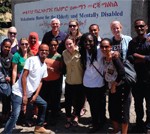A study by Hurkmans et al had 233 therapists complete a questionnaire with current assessment and interventions.5 In the study, therapists were considered specialists if they had completed advanced arthritis training courses. Overall, the study revealed no statistically significant difference between the characteristics of a generalist and specialist. It did, however, find a statistically significant difference between a specialist and generalist regarding reported frequencies of performing diagnostic assessments and interventions, implying that a specialist may be more likely to provide evidence-based interventions. Minimal research has been conducted in this area, and, ultimately, all physical therapists possess the skill and knowledge to treat a referred patient. In general, communication between healthcare providers is optimal for the patient and is commonly the missing ingredient in patient management, secondary to time constraints, abundant paperwork, and demanding work schedules. Clinician and therapist communication is fundamental and critical if a patient’s medical diagnosis is complicated by multiple comorbidities or significant disability, or for a rare diagnosis that may be unfamiliar to a physical therapist—all of which can be concerns for rheumatology patients.
PT is often an essential part of care in the treatment of rheumatic diseases, along with other specialty areas like occupational therapy, nutrition, and psychology. The scope of PT practice is expansive, with a wide variety of settings and populations. Patients with a complex or rare diagnosis may benefit from a therapist with experience in rheumatic diseases or advanced training in the field.
Alicia Lovato, PT, DPT, is a physical therapist at Manual Therapy Associates, Inc. and Azura of Lakewood Rehabilitation Suites in Arvada, Colo. She studied PT at Regis University and is a member of the ARHP Practice Committee.
References
- American Physical Therapy Association. Vision 2020. Updated September 18, 2012. Available at www.apta.org/vision2020. Accessed December 7, 2012.
- American Physical Therapy Association. Today’s physical therapist: A comprehensive review of a 21st-century health care profession. January 2011. Available at www.apta.org/uploaded Files/APTAorg/Practice_and_Patient_Care/PR_and_Market ing/Market_to_Professionals/TodaysPhysicalTherapist.pdf. Accessed December 7, 2012.
- Dugdale D, Epstein R, Pantilat S. Time and the patient-physician relationship. J Gen Intern Med. 1999;14:34-40.
- Gross D, Zyzanski S, Borawski E, Cebul R, Stange K. Patient satisfaction with time spent with their physician. J Fam Pract. 1998;47:133-137.
- Hurkmans E, Li L, Verhoef T, Viliet T. Physical therapists’ management of rheumatoid arthritis: Results of a Dutch survey. Musculoskeletal Care. 2012;10:142-148.

